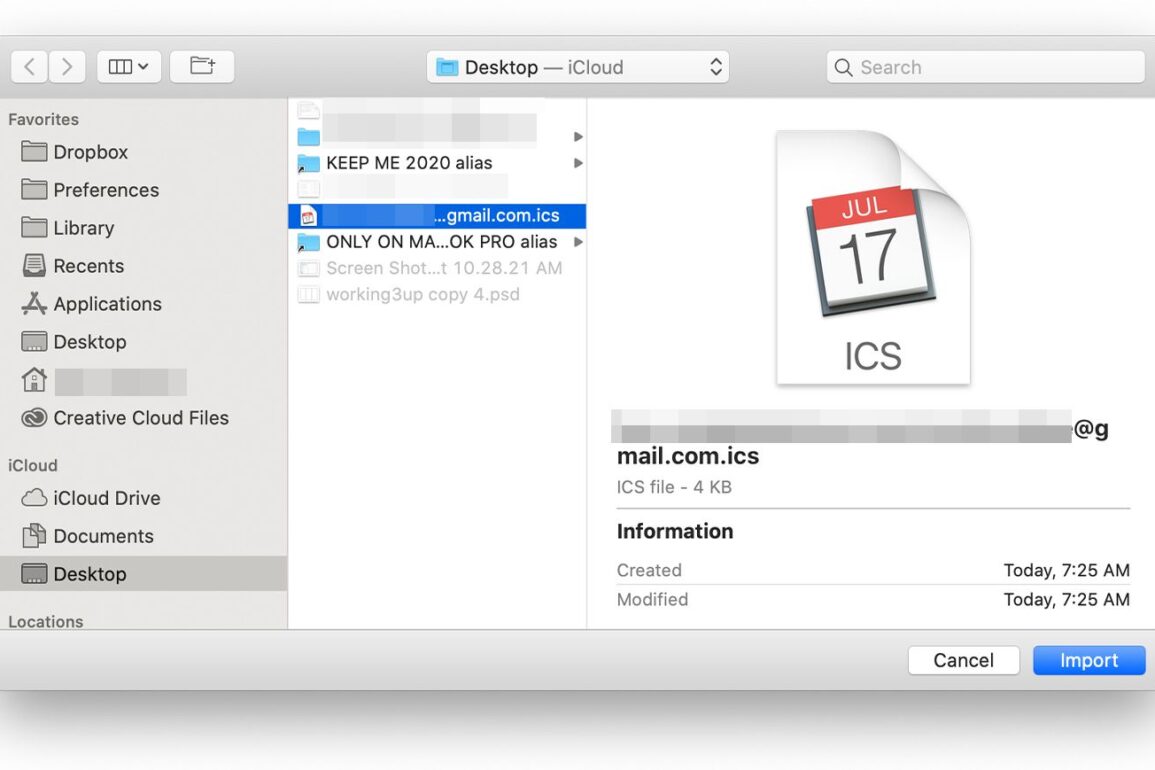Today’s digital technology presents us with a wide variety of file extensions on a regular basis. These extensions, which range from.docx for documents to.jpg for pictures, instruct our gadgets on how to properly read and display files. Some file extensions, like the .ICS files, are still mysterious to many people, though. We will delve into the realm of .ICS files in this thorough book, solving their puzzles and investigating their many applications. So let’s get started exploring the.ICS file extension.
Understanding the .ICS File Extension
What is an .ICS File?
The “iCalendar” or “Internet Calendar” file type is indicated by the .ICS file suffix. Calendar data can be stored and shared using this extensively used format. The .ICS file format, created by Apple in the late 1990s, has grown to be the industry standard for transferring calendar data between various platforms and apps.
The Composition of a .ICS File
An ICS file is essentially a text file with structured data in an interpretable format for humans. Since its main content is plain text, it works with any calendar program, no matter what operating system is used. Typically, an .ICS file has the following elements:
- BEGIN and END Tags: These tags encapsulate the entire content of the .ICS file. The file starts with BEGIN:VCALENDAR and ends with END:VCALENDAR.
- Event Information: Within the calendar, you’ll find event-specific details, such as event title, date, time, location, and other relevant information. Each event is delineated by BEGIN:VEVENT and END:VEVENT tags.
- Event Properties: These properties define the characteristics of each event. They include fields like SUMMARY for the event name, DTSTART for the start date and time, DTEND for the end date and time, LOCATION for the event venue, and more.
- Time Zone Information: .ICS files often contain information about time zones to ensure accurate scheduling across different regions.
- Recurring Events: The .ICS format supports recurring events, allowing you to specify events that repeat at regular intervals.
- Alarms and Reminders: You can set alarms and reminders for specific events within an .ICS file, ensuring you don’t miss important appointments.
- Attendee Information: If the event involves multiple participants, you can include attendee information, including their email addresses and roles.
- Organizer Information: The .ICS files also identifies the event organizer, providing contact details.
Common Use Cases for .ICS Files
After defining .ICS files, let’s examine some typical applications for them:
1. Calendar Sharing and Collaboration
A major function of .ICS files is to make calendar sharing and collaboration easier. You can export your calendar data as a .ICS file and then share it with friends, family, and coworkers. After that, recipients can import this file into Google Calendar, Apple Calendar, Microsoft Outlook, or any other compatible calendar application.
If you’re on a project team, for instance, you can send your teammates an .ICS file to let them know about deadlines and significant project milestones. In this manner, we keep all parties informed, and we can quickly distribute any modifications or adjustments to the schedule by editing and redistributing the .ICS file.
2. Event Invitations and RSVPs
Many people send out invites to events and keep track of RSVPs (Répondez s’il vous plaît, which is French for “Please respond”) using the.ICS format. Your schedule will automatically add the event details when you import an invitation in the form of a .ICS file into your calendar software. The majority of calendar apps also let you reply to the invitation by saying whether or not you’ll be there.
When organizing an event, this function is invaluable for tracking attendees and their reactions. With the help of the RSVPs, the organizer can easily keep track of attendance and modify the event as needed.
3. Subscription to Public Calendars
Numerous establishments, including companies, sports teams, and educational institutions, release their calendars in the.ICS format so that interested individuals can subscribe to them. When you subscribe to a public calendar, it mirrors updates and modifications made by the calendar owner in your calendar.
If you’re a sports fan, for example, you can subscribe to the schedule of games for your preferred team. This way, you’ll never miss a match because you’ll always know when and where their games are. In a similar vein, educational establishments frequently provide students the option to subscribe .ICS calendars that include crucial dates like exam schedules and holidays.
4. Backup and Migration
The use of .ICS files for backup and migration is another useful application. You can export your current calendar data as a .ICS file if you’re moving to a new calendar app or device. Import this file into your new calendar software for a seamless transfer of all appointments and important events.
Furthermore, exporting your calendar as a.ICS file on a regular basis acts as a backup of your calendar information, shielding it from inadvertent loss or program malfunctions.
Conclusion
A widely used format for calendar data storage and exchange is the .ICS file extension, short for “iCalendar” or “Internet Calendar” file. It is a popular option for a number of use cases, from calendar sharing and event invitations to public calendar subscriptions and data backup, thanks to its structured, text-based design that makes it compatible with a variety of calendar applications and platforms.
In an increasingly digital world, being aware of and proficient with .ICS files may boost your productivity and keep you organized. Next time you see a .ICS file, know it’s a useful tool for managing time and calendars, not just another extension.
